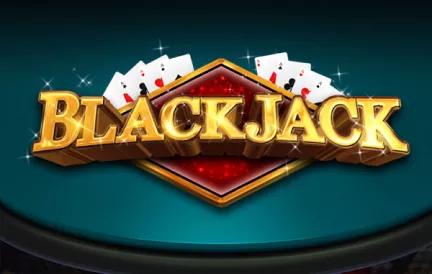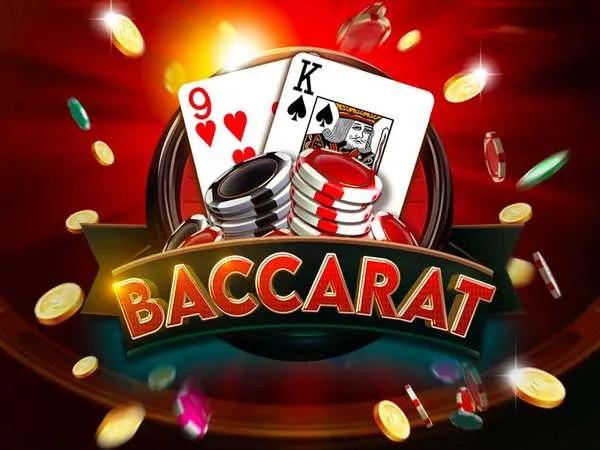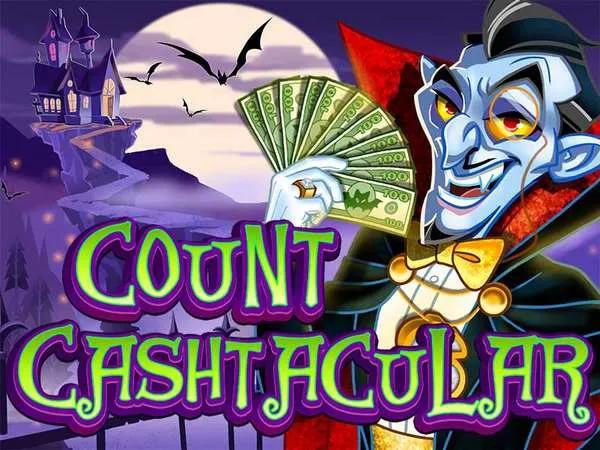Basic Blackjack Rules
November 13th, 2024

24921
Blackjack is one of the true casino classics. An easy-to-play card game between the player and the dealer with one aim: get as close to 21 as possible. The ultimate aim, of course, is blackjack! In this very article, we’ll tell you all you need to know. You’ll learn about the game rules, how to play, odds and payouts, variations and much more.
What are Blackjack Rules for Play?
As we were saying, blackjack has long been a favorite in the world of online casino. Its fast pace and simplicity is what makes this so popular, plus the excitement that comes with it.
- Easy to learn basic rules, making it accessible for beginners.
- Provides opportunities for strategic play to reduce the house edge.
- Offers multiple betting options and side bets for variety.
- Fast-paced gameplay suitable for both casual and experienced players.
- Can be played both online and in live dealer formats.
- Advanced strategies require practice and knowledge of probabilities.
- House edge exists, so long-term losses are possible without proper strategy.
- Some side bets have a higher house edge, reducing overall profitability.
- Online versions may have speed limits or restrictions compared to live play.
But not everyone is familiar with this classic card game, so here’s a rundown of how it works and the rules for blackjack. From how to place a bet, the options to the player and the dealer, plus what everyone wants to know… how to win. So here’s your beginners’ guide.
The Deal: How the Game Begins
Blackjack begins from the moment you place your first bet. There are a number of betting options in blackjack, but it all starts with the main bet. This must be placed before a card is dealt, and is the amount you want to bet on the hand.
You can also place side bets before the deal. Perfect Pairs is a side bet that pays out if the player’s hand contains a perfect pair (same card), colored pair (same rank and color, different suits) or a mixed pair (same rank, different suits/colors).
21+3 is a side bet that combines blackjack with three-card poker – a casino player’s dream. It’s a bet that pays extra if you can make a hand out of the three cards on show. The winning hands are:
- Suited 3 of a Kind
- Straight Flush
- 3 of a Kind
- Straight
- Flush
Once all bets are placed, the dealer will deal four cards – two to the player, two to themselves. Three of the four will be revealed face up. The dealer’s second card will be shown face down.
Player’s Options: Hit, Stand, Double Down, Split
Once the bet has been placed, you — as the player — can hit or stand. Hitting means receiving another card from the dealer, which you can continue to do until you’re satisfied with your total score. Standing means no more cards are dealt.
There are other options too, depending on the hand you receive. Double Down is an option that means doubling your original bet, giving you a hit of one card and one card only. This is most commonly done when the total is 11. That’s because there’s a strong chance of hitting a 10, Jack, Queen or King and therefore scoring a total of 21.
The Split option is available when you receive two cards of the same rank. For example, if you received two sevens, you could split and go forward playing with two hands – hitting or standing as normal. As with Double Down, this will also mean placing an additional bet equal to your original.
If your score exceeds 21, you’ve “bust” and will lose all bets regardless of dealer score.
Dealer’s Rules
Blackjack dealers have slightly different blackjack card rules to the player, ensuring consistency when it comes to gameplay and house edge. When the dealer reveals their second card, the hit or stand options differ slightly. In most online blackjack games, if the value is 16 or lower, they must hit. If the score reaches 17 or higher, they must stand. In standard Blackjack, the dealer will check immediately for blackjack – ending the game if a natural 21 is revealed.
Platform
Download, Instant Play, Mobile
Currencies
USD, EUR, GBP, CAD
The Deck and Card Values
In most online blackjack games, between four and eight decks will be used in play – increasing the chances of side bets like Perfect Pair landing. The all-important card values are as follows:
- Ace: 1 or 11
- 2 to 10: Face Value
- Jack, Queen, King: 10
The ace can act as hard or soft. If your ace helps you to a high score, you will probably want to count it as an 11. But if you are on 15, for example, with an ace, you can hit and turn it soft if you go over 21 – giving you another chance to grab that winning score.
Payouts in Blackjack
Here’s what you really wanna know. How much can you win playing blackjack online? As we’ve seen, there are a number of different bets that can be placed during a blackjack hand – so here are the traditional payouts on all of them.
Main bets
- Blackjack (Natural 21) – 3:2. A $10 bet returns $25
- Standard win (beat dealer score) – 1:1. A $10 bet returns $15
- Tie: Push. Original bet returned.
Side bets
Perfect Pair
- Perfect Pair – 25:1. A $10 bet returns $260
- Colored Pair – 12:1. A $10 bet returns $130
- Mixed Pair – 6:1: A $10 bet returns $70
21+3
- Suited 3 of a Kind – 30:1. A $10 bet returns $310
- Straight Flush – 10:1. A $10 bet returns $110
- 3 of a Kind – 5:1. A $10 bet returns $60
- Straight – 3:1. A $10 bet returns $40
- Flush – 2:1. A $10 bet returns $30
Special Blackjack Rules Variations
As with many online casino games, there are a number of variations of blackjack. And that means a variation in blackjack game rules. Here are a couple of those alternatives you might find while playing online.
European Blackjack is one of the most common online blackjack variations. In this version of the game, the dealer’s second card won’t be revealed until all hands have been played. Another commonly seen variation is Atlantic City Blackjack. Some differences include dealers must stand on a soft 17, and players can surrender – forfeiting half their bet to exit their hand.
Smart Tip: The goal is to beat the dealer without going over 21.
Common Mistakes and Misunderstandings in Blackjack Rules
There are quite a few dos and don’ts in online blackjack. Decisions made in an instant that could impact your success and your bankroll. Here are a few things to remember before rushing into a costly call.
Remember aces are flexible. Soft hands give you an extra opportunity to get closer to 21, so you can be confident of hitting if you have an ace and six or lower.
Know when to double down. Double on a 10 or 11, as you have a high chance of winning. This is because there are more 10-cards than any other (10, Jack, Queen or King. If the dealer’s upcard is between a 2 or 9, this is an extra reason to double as they are likely to score an awkward number (12, for example).
Know when to split. As above, strategy is key. Always split aces and eights. Aces give you extra chances of blackjack. Two eights together is weak as a 16, but could form two strong hands of 18. Don’t split 10s or fives – you’re weakening hands of 20 and 10. And take into consideration the dealer's upcard before placing that additional bet.
Avoid insurance. Blackjack insurance is available to protect you against the dealer revealing 21 with their first two cards. But in the long run, taking this is mathematically disadvantageous and tilts the odds further in the casino’s favor.
There is an attractive 2:1 payout on blackjack insurance but to win that, you will have lost your main bet – meaning you’ll only break even on the hand. If you do go on to win the hand, you’ll have lost a percentage of your winnings due to taking out blackjack insurance.
Online vs. Land-Based Blackjack Rules
In general, there are no noticeable differences in casino blackjack rules when playing online and in a land-based casino – but there can be different blackjack table rules dependent on the game.
Online casinos offer a wide selection of tables with different betting limits than land-based casinos, which is a good thing for players with different budgets. It’s easier to find tables online with more favorable rules for the player too, such as a 3:2 payout for blackjack, or the ability to double up on any two cards in a hand.
Live dealer blackjack is popular online for a reason, using real dealers, on real tables, in real time to create that authentic casino experience on your screen. That means the speed of play is slowed down for this very reason. In land-based games, six to eight decks are used and reshuffled when a certain amount of cards have been used. But online, the decks will be reshuffled automatically after every hand, plus you don’t have to wait for other players to make their decisions.
Top Tip: Number cards are worth their face value, face cards are 10, and Aces can be 1 or 11.
Tips for Learning Blackjack Rules Quickly
Our number one tip: read this article! But apart from that, we can break the blackjack rules down to a few simple points to set you on your way to success. Understanding the objectives and the card values are the first steps. Remember the aim is to get to 21 and beat the dealer – not just get a high score. Therefore, the hands of 16, 17 and sometimes even 18 are not likely to win. We’re not saying hit on 18… but just remember the aim is winning.
Utilize those aces. If you’ve not got a blackjack, their flexibility of acting as a 1 or 11 can prove very useful. Learn strategies and avoid common mistakes. Know when to hit, stand, split and double. Steer clear of insurance. Find your favorite online blackjack game and variation. Do you prefer standard blackjack or European Blackjack? Do you prefer playing in real time with real dealers in a live casino? Pick the option that suits you best.
And most importantly, watch, practice and play. There’s no foolproof strategy for success, but the more you know and learn, the better set for success you’ll be.
Frequently Asked Questions
What are the basic rules of blackjack?
The basic blackjack casino rules are as follows:
You place your bets to start the game. The dealer will hand out four cards. Two to the player facing upwards, two to themselves – with only one showing. If the dealer has a blackjack (Ace + 10-card) then the game ends and the player loses. If the player reveals a blackjack, they win.
If neither occurs, the game continues with the player being able to hit or stand in a bid to get their hand closest to 21 – without going over and busting the score. Going bust means an automatic loss. If the player gets a higher score than the dealer, it’s a win. A higher score for the dealer and it’s a loss. And a tie score means a push, where the player gets their stake back.
How do you win in blackjack?
You can win in blackjack in a couple of ways, but ultimately it’s all about beating the dealer in a battle to 21.
If you get a natural blackjack — an ace with a 10, jack, queen or king — then you’re a guaranteed winner, with a payout of 2:1. The other way is just by outscoring the dealer – whether that’s with two cards, five cards or more. If you do that, you’ll be paid out at odds of 1:1.
You lose if the dealer gets a natural blackjack, or if you go bust.
When should you hit, stand, double down, or split in blackjack?
When to hit, stand, double or split is entirely down to you of course, and different players will have different strategies. It depends on your hand and the dealer’s revealed card, so here are our top tips.
In general, stand when you have a hard 17 or higher. If you have a hand between a hard 12 and 16, make a decision based on the dealer’s card. If soft (hand contains an ace) then hit. But if the dealer shows between a two and a six, it might be worth standing on these lower totals (12-16).
Double on 10 or 11, especially if the dealer is showing between 2 and 9. Split all aces to give extra blackjack chances. Split all eights – it’s a weak hand together, but can create two strong ones when separated. Never split fives or tens.
What does it mean to “bust” in blackjack?
To go bust in blackjack means to get a score of over 21. This means an automatic loss on your main bet, regardless of the dealer score. Every time you hit, the dealer will give you an extra card. You can keep on hitting to get closer to 21 – but once you go over, that’s it. Beware!
How does the payout work when you get a blackjack (21)?
A blackjack consists of an ace along with a 10, jack, queen or king. If you hit a blackjack with your first two cards handed out by the dealer, you’ll be paid out at odds of 3:2. This means if your main bet is $10, you’ll receive a profit of one-and-a-half times your stake. So $15 winnings, plus your $10 main bet back. Meaning a return of $25.
What is the difference between American and European blackjack?
The main difference between the two is at the point of the deal. In standard (American) blackjack, the dealer will check for a blackjack immediately if their first card is an ace or a card with a value of 10. If a blackjack is revealed, the game ends there and then. If the game continues, you can be sure the dealer hasn’t got 21.
In European blackjack, all hands will be completed before the dealer turns their second card. Split rules and double rules may vary, with American blackjack offering greater flexibility. You can split anything, including re-splitting aces, and double anything you want. European blackjack often restricts doubling to 9, 10 or 11 – and you can only split once per round.
All in all, standard blackjack offers players more choice, more control and a slightly reduced house edge – which is why it’s the most commonly played version of online blackjack.
What is the insurance bet in blackjack, and should I use it?
Insurance — as you’d expect — is on hand to protect you if something goes wrong. In the case of online blackjack, insurance is a helpful bet that gives you extra protection against the dealer revealing a Blackjack. If the dealer reveals their first card and it’s an ace, you’ll be given the chance to take blackjack insurance at a cost of half your stake. If the dealer’s second card is a 10, Jack, Queen or King, your insurance will pay you out at odds of 2:1.
Of course, that is the best case scenario. But using blackjack insurance is not always beneficial. If your blackjack insurance pays out, it means you’ve lost the hand and therefore will only break even. If the dealer doesn’t get blackjack and you go on to win the hand, you’ve lost a cut of your winnings.
And in the worst case scenario, the dealer doesn’t get blackjack but still wins the hand – and you’ve lost more than your main bet. If you’re working to a strict bankroll, this can have a major effect on your play. In a nutshell, blackjack insurance increases the house edge, therefore decreasing your chances of success in the long run.
Related posts











